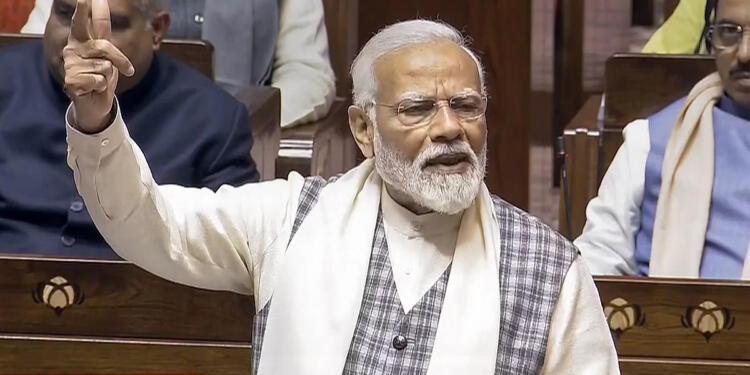Prime Minister Narendra Modi emphasized the ongoing efforts to restore peace in Manipur, underscoring the collaborative approach taken by both the state and central governments. He highlighted that comprehensive engagement with all stakeholders, including local communities, tribal leaders, and civil society organizations, is crucial for achieving lasting peace.
Modi stressed the importance of dialogue, reconciliation, and cooperation in addressing the root causes of the conflict. He appealed to every citizen to support these peace initiatives actively, emphasizing that collective efforts and unity are essential to overcome the challenges and create a stable, harmonious environment in Manipur.
Decline in Violence
During a debate on the ‘Motion of Thanks’ on the President’s address in the Rajya Sabha, PM Modi highlighted a significant reduction in violence in Manipur. He mentioned that over 11,000 FIRs have been filed and 500 arrests made. This, according to him, is indicative of the possibility of achieving peace. He assured that the government is actively working to manage the situation in Manipur.
Addressing Deep-Rooted Issues
PM Modi emphasized the deep-rooted issue of inter-tribe atrocities in Manipur, cautioning against its politicization. He underscored the need for a unified approach to address these conflicts, expressing optimism that Manipur’s communities would unite against divisive tactics. By refraining from politicizing these sensitive matters, PM Modi emphasized the importance of fostering reconciliation and dialogue among different tribes in Manipur, highlighting the government’s commitment to promoting peace and harmony in the region.
When and Why Did the Violence Occur
Ethnic conflict started in Manipur on May 3, 2023, resulting in the deaths of 225 people so far and displacement of over 50,000. The Home Ministry has approached this issue solely from a law and order perspective, while the problem is far more complex and pervasive.
Inexperience and Failure
When ethnic unrest erupted in Manipur, the then DGP P. IPS officer Rajiv Singh from the Tripura cadre, who had no prior experience in Manipur, replaced Dongel. Similarly, retired IPS officer Kuldeep Singh from the West Bengal cadre was appointed as Security Advisor, also with no experience in Manipur. These appointments exacerbated the situation.
Beyond Security Measures
In addition to enhancing security measures, the central government should adopt a comprehensive approach that involves Manipur’s diverse stakeholders. Rebuilding trust and promoting dialogue among communities, political entities, NGOs, and civil society is crucial. This inclusive strategy not only addresses immediate security issues but also lays the groundwork for sustainable peace and development in Manipur. By engaging local leaders and organizations, the government can cultivate a cooperative environment where all parties feel respected and appreciated, paving the way for lasting solutions that align with the aspirations and needs of Manipur’s populace.”
Economic Development
Economic development is integral to fostering peace in Manipur. The government’s initiatives include enhancing infrastructure, fostering job creation, and stimulating the local economy. These efforts aim to mitigate economic disparities, which are often underlying causes of social unrest. By promoting economic growth and equitable distribution of resources, the government seeks to alleviate tensions and foster greater social cohesion among Manipur’s diverse communities.
Education and Awareness
Another strategy being employed is raising awareness and promoting education about the importance of peace and unity. Educational programs and campaigns are being launched to teach the younger generation about the value of coexistence and mutual respect. By investing in education, the government hopes to foster a culture of peace in Manipur.
Conclusion
The efforts to bring peace to Manipur are ongoing, with significant strides made in reducing violence. However, political tensions remain high, as evidenced by the recent events in the Rajya Sabha. Cooperation and a focus on resolving deep-seated issues are crucial for achieving lasting peace in Manipur. Community involvement, economic development, and education are key components of the strategy to create a peaceful and prosperous Manipur. The central and state governments, along with the citizens, must work together to ensure a stable and harmonious future for the region.
ALSO READ: Hathras Chaos: One who fell once could not rise again

























